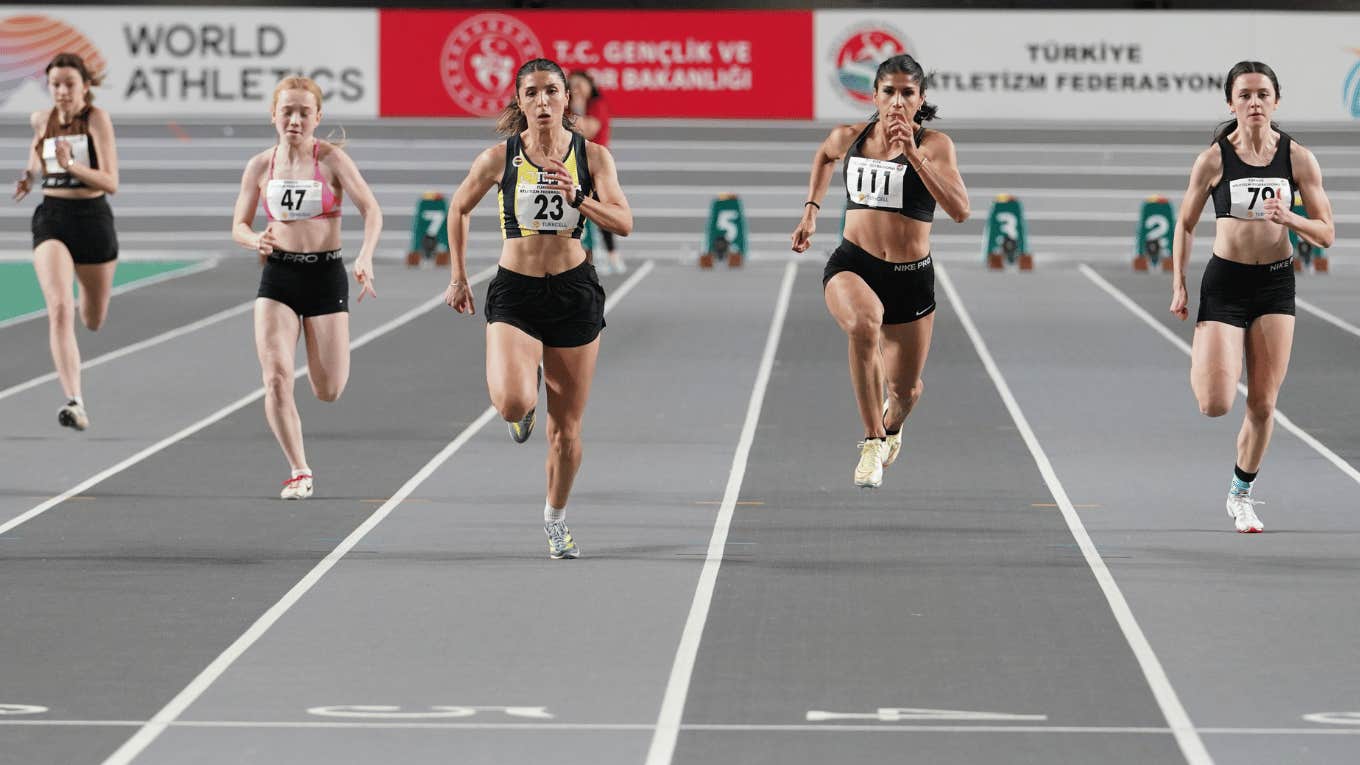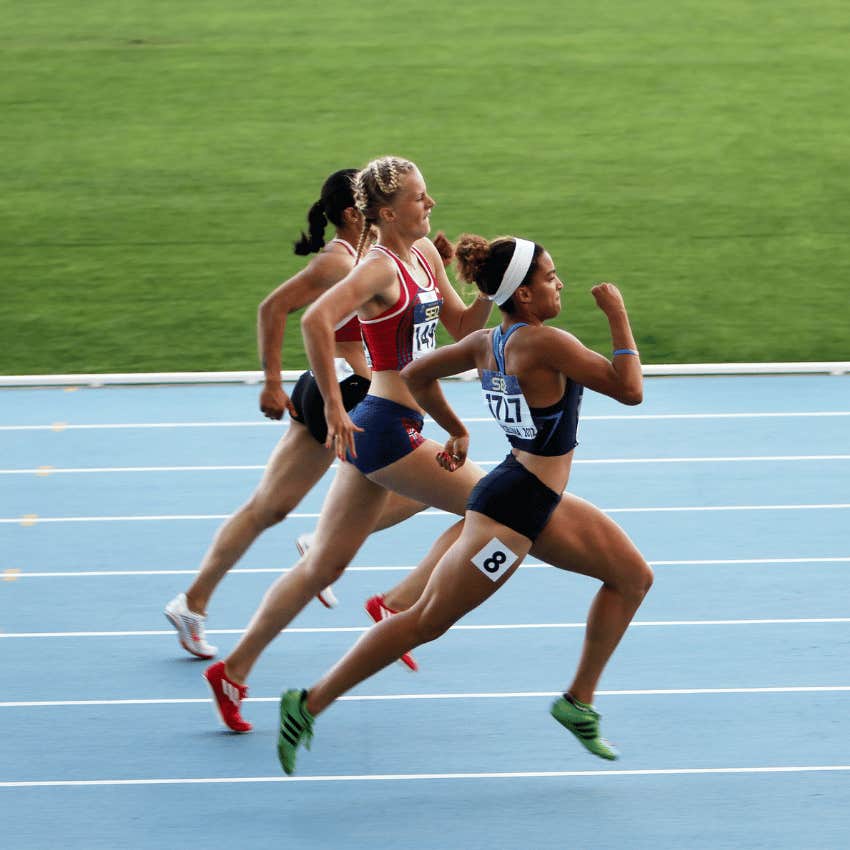Olympic Runners Are Changing The Conversation Around What Women's Bodies Should Look Like
There's more to winning than what their bodies look like.
 EvrenKalinbacak | Shutterstock
EvrenKalinbacak | Shutterstock The 2024 Paris Olympics will end in a few days, yet the athletes’ influence will continue to echo across the world.
Women, in particular, are finding solace, healing, and inspiration in watching female athletes of all shapes and sizes compete and win.
Track and field athletes have an especially resonant place in the conversation around body image, as the long-standing narrative has been that lighter bodies run faster.
But the old narrative is losing steam, to be replaced by a more holistic, body-positive approach to the sport.
Olympic runners are changing the notion that healthy athletes need to be thin.
When we picture elite female runners, our imaginations tend to conjure a vision of smaller women who are all muscle with no fat. Yet, as various Olympians have proven, strong, capable, and medal-winning bodies are far from one-size-fits-all.
For runners, thinness is equated with speed, but Olympians are flipping the script to show that strength and power looks all sorts of different ways.
In an advertisement for supplements, Olympic heptathlete Chari Hawkins touched on how she reframed her internal narrative around body image in a way that’s helped her compete at her fullest potential.
Hawkins noted that in the past, “I valued so much of the way that my body looked.”
“It was almost as if I was a statue in a museum. As a human being, I’m a machine. I move, I glide, I jump, I throw,” she said. “Being able to make that shift really allowed me to flourish.”
Athletes and coaches are acknowledging that putting too much focus on low body fat percentages can cause immense harm.
Losing too much weight can lead to issues with bone density and fractures and can cause amenorrhea, the loss of a menstrual period. While being at a low weight might help a runner in the short term, in the long term, it can cause serious health and performance issues.
Female runners are especially at risk for a condition called Relative Energy Deficiency in Sport (REDS), which is also known as female athlete triad (FAT). The condition can affect energy availability, menstrual function, and bone mineral density.
 Denis Kuvaev | Shutterstock
Denis Kuvaev | Shutterstock
A 2015 study that focused on runners at the Comrades Marathon found that only 7.5% of female runners knew about the syndrome, despite the fact that 44.1% of them were at high risk of developing it.
32% of female runners who participated in the study displayed disordered eating, and 48.4% believed loss of a period was normal with heavy training.
The study showed that many runners have deeply ingrained ideas about what their bodies should look like, yet runners don’t have to be thin to win.
It's a message that's providing inspiration to female viewers across the world.
More Olympic runners and their coaches are focusing less on what an athlete looks like and more on what their bodies can do.
This mentality is being championed beyond the track by athletes in other arenas, like Olympic rugby star Ilona Maher.
“All body types matter,” Maher declared. “All body types are worthy, from the smallest gymnast to the tallest volleyball player, to a rugby player, to a shot-putter, to a sprinter.”
“All body types are beautiful and can do amazing things, so truly see yourself in these athletes and know that you can do it, too,” she said.
By separating what a body “should” look like and focusing more on the incredible feats those bodies can accomplish, Olympic athletes are sending out a powerful message for everyone to hear.
Alexandra Blogier is a writer on YourTango's news and entertainment team. She covers social issues, pop culture analysis and all things to do with the entertainment industry.

